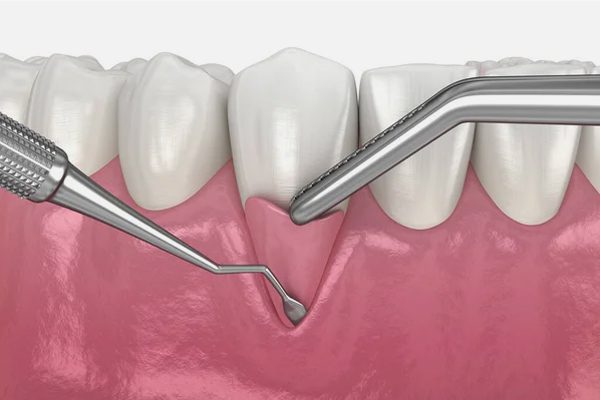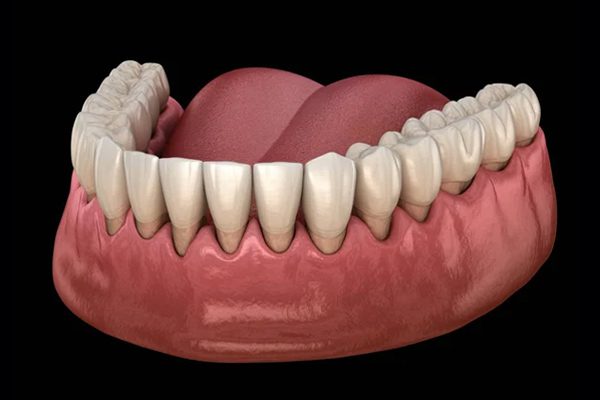Soft tissue or gum tissue grafting is a cosmetic dental procedure used to improve the esthetics of your gum line, reduce your tooth sensitivity, or stop gum recession. This procedure can help you develop gum tissue or cover roots to develop support for your teeth naturally.
Mainly, this procedure involves removing tissues from the roof or other area of your mouth or from the lab and then fixing them to the affected area of your teeth. There are different types of soft tissue grafting. Dr. Heravi will recommend a method based on the condition of your teeth.

If you have gum recession and tooth sensitivity you might get benefit from periodontal soft tissue surgery or gum grafting. Soft tissue surgery also helps to uncover more of the tooth as well as reshape and improve any recession of the gums. The overall goal of periodontal soft tissue surgery is to help restore health and function to a person’s mouth which will in turn improve their dental health and aesthetics. Your periodontist will carefully assess your gum and recommend a method based on the condition of your teeth.
Receding gums can be caused by a variety of factors, including genetics, poor oral hygiene, aggressive brushing, Orthodontic Treatment, Trauma and periodontal disease. Poor oral hygiene such as inadequate brushing and flossing can lead to buildup of plaque and bacteria on the teeth which can cause inflammation in the gums. Periodontal disease is the leading cause of receding gums as it causes an infection that leads to inflammation, destruction of bone and gum tissue, and eventual recession.
Aggressive brushing using improper technique or a hard-bristled toothbrush can also wear away gum tissue leading to recession. Regular visits to the dentist and periodontist for preventive care is important in order to detect any issues early and take proper steps towards healing before further damage occurs.
If you avoid treatment, the gingivitis worsens and causes your teeth to recede. Note that if you don’t understand the signs of receding gums and it continues to worsen, gum recession can cause severe health problems. Your affected gum will start leaving the tooth and create a pocket, which gives the space for plaque buildup.
In a few weeks or months, the problem worsens. Pockets will become deeper, and gums will continue to recede. As a result, you may lose your teeth.

Some more problems that can lead to recessed gums are mentioned below.
Genetics
Genetics can lead to gum recession. No matter how well you care for your teeth, you will suffer from this condition.
Periodontal Diseases
Periodontal gum condition is one of the most common problems that cause gum recession. This infection can damage the soft tissues and bone supporting your teeth and cause your gum to recede.
Orthodontic Treatment Or Trauma
Injury, trauma, or orthodontic treatment can also lead to gum problems.
Staying on top of oral hygiene habits such as brushing and flossing can help to prevent the buildup of bacteria that leads to inflammation in the gums. Taking good care of your teeth and mouth is an important part of maintaining healthy gums. It is also important to receive regular professional dental cleanings which can help remove plaque from areas that are difficult for a person to reach with just brushing alone. Periodontal disease can be managed if caught and treated early, so regular visits are essential for optimal gum health.
If you have developed a gum recession problem, you may consider fixing your gum. The gum grafting treatment method can lower the risk of more severe loss of tissue and give you more comfort, healthy gums, and a beautiful smile.
Dr. Heravi and her team use the most innovative, non-invasive techniques to offer you quality soft tissue grafting and periodontal surgery procedures. Please call Dr. Heravi’s office for a consultation.